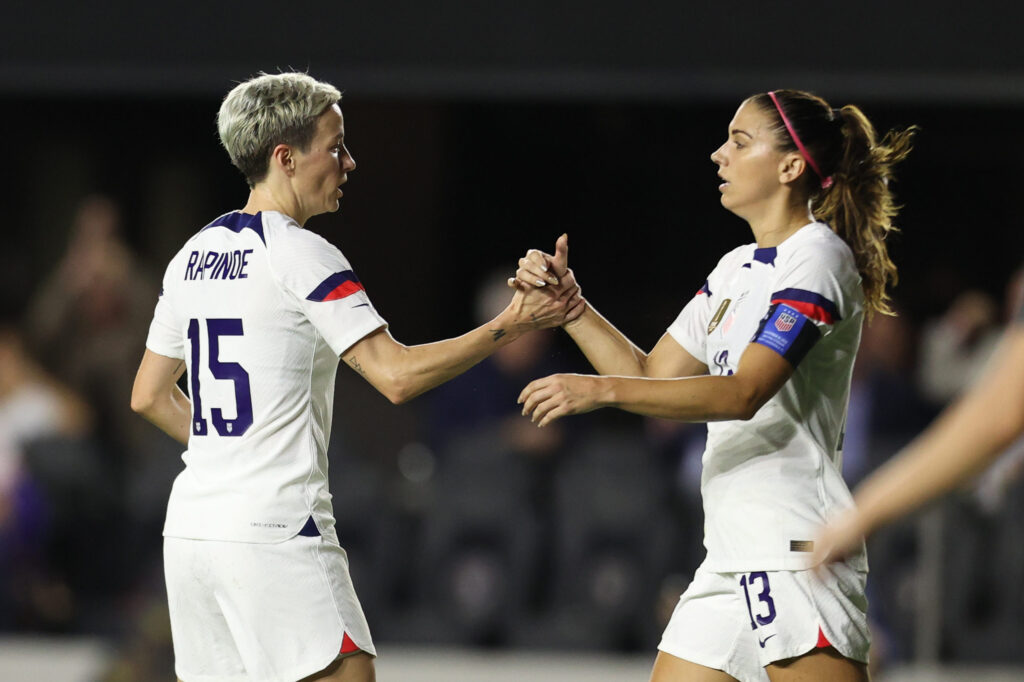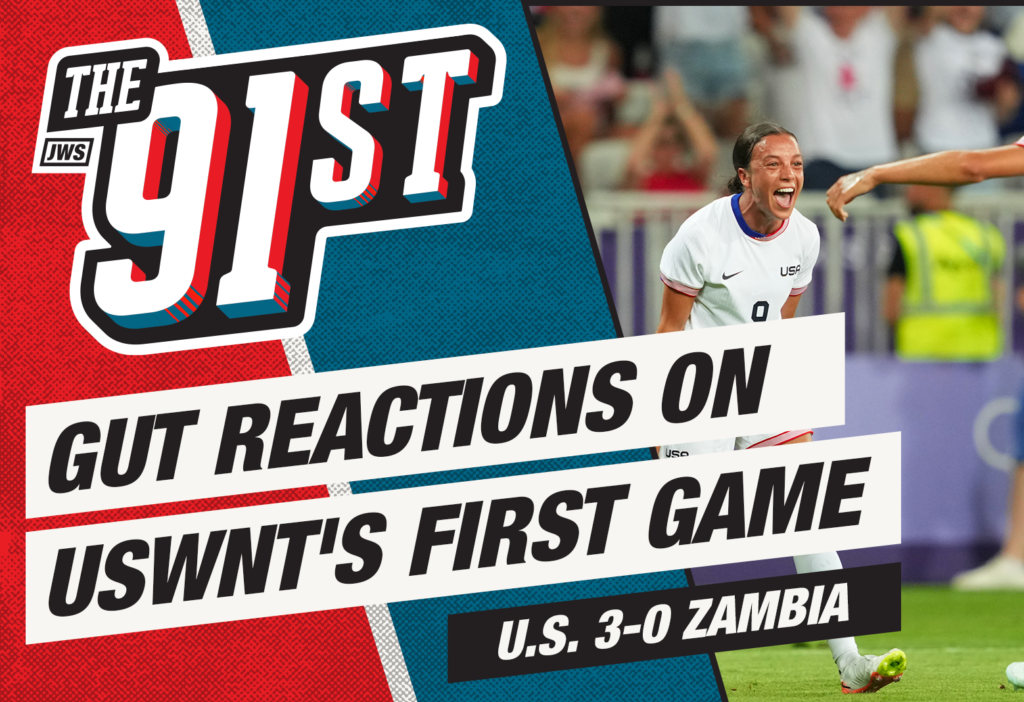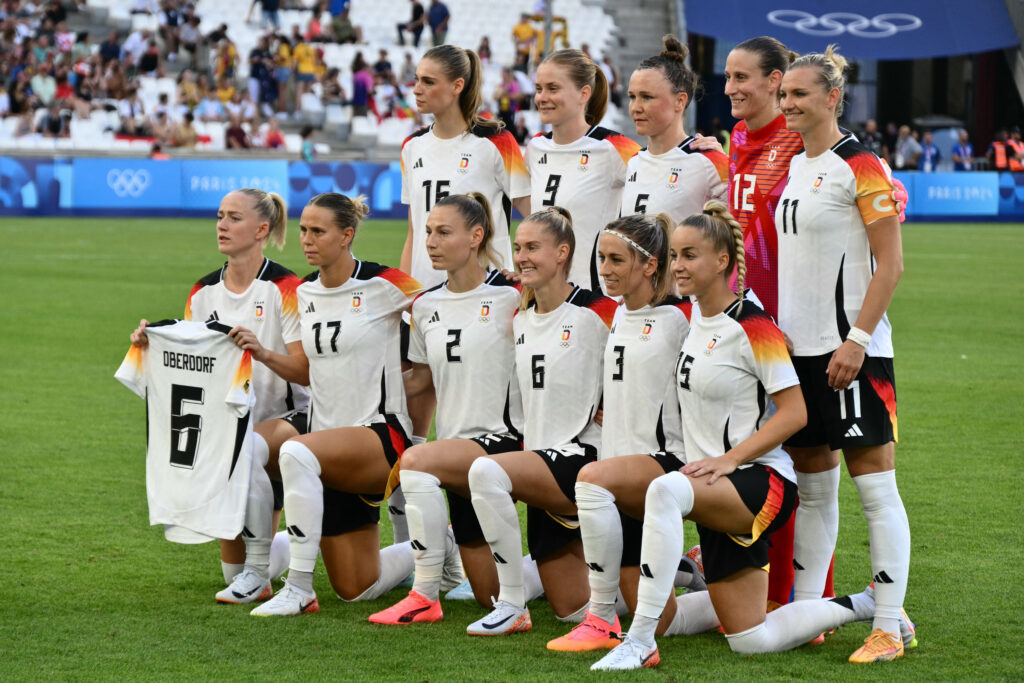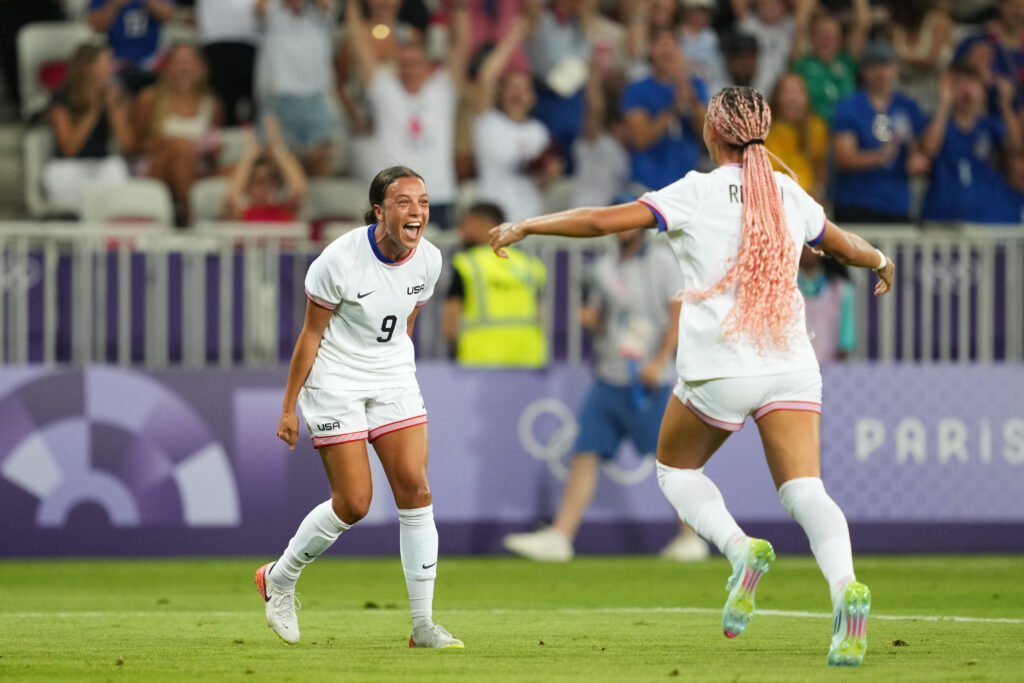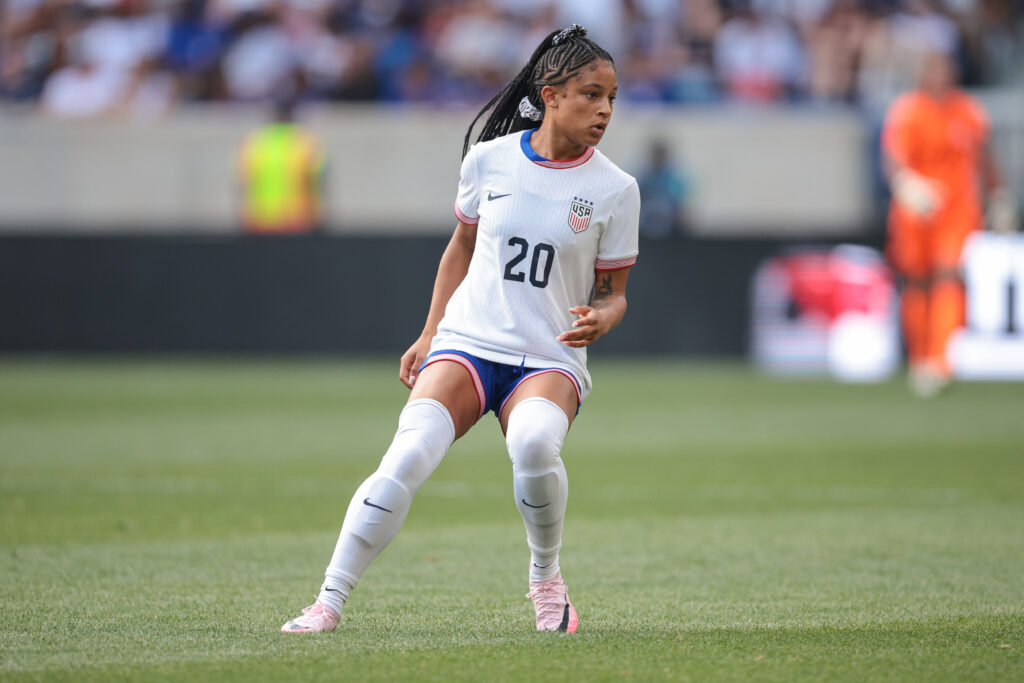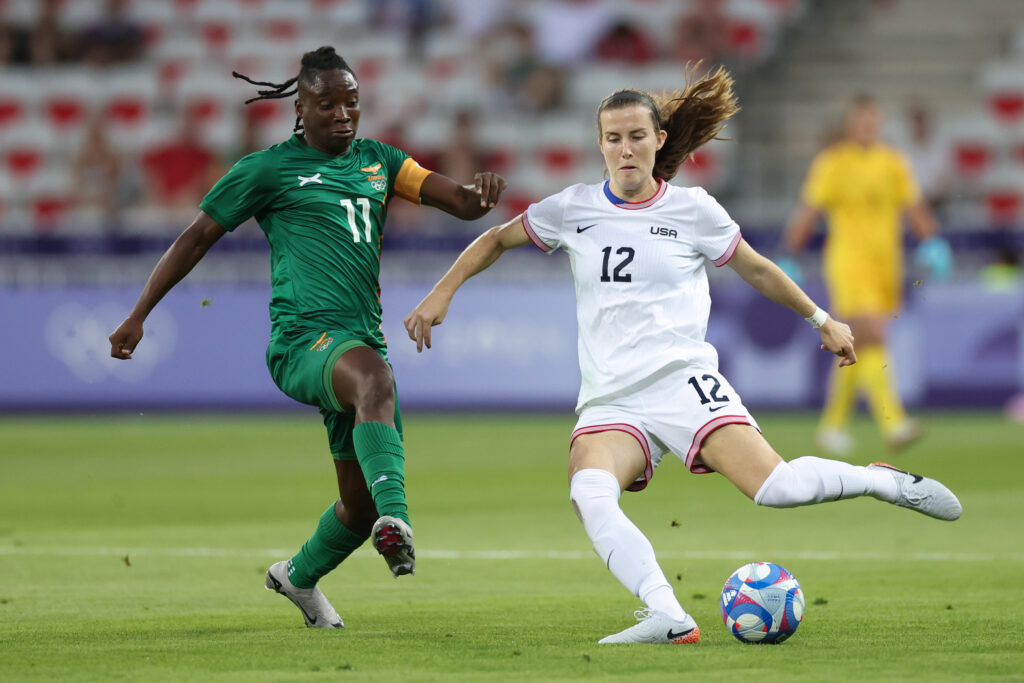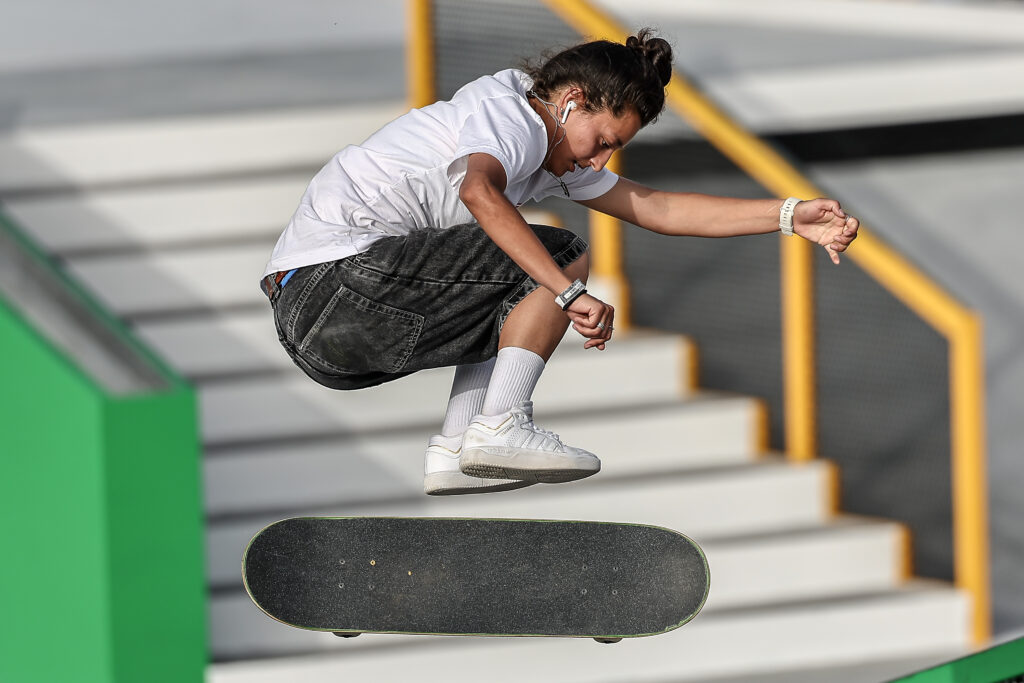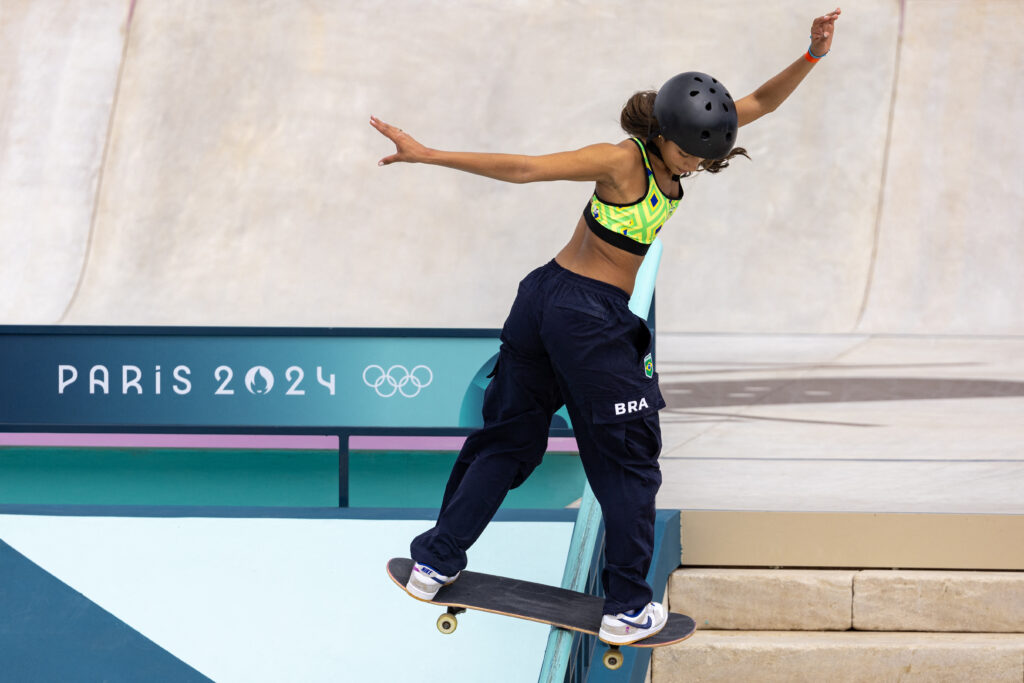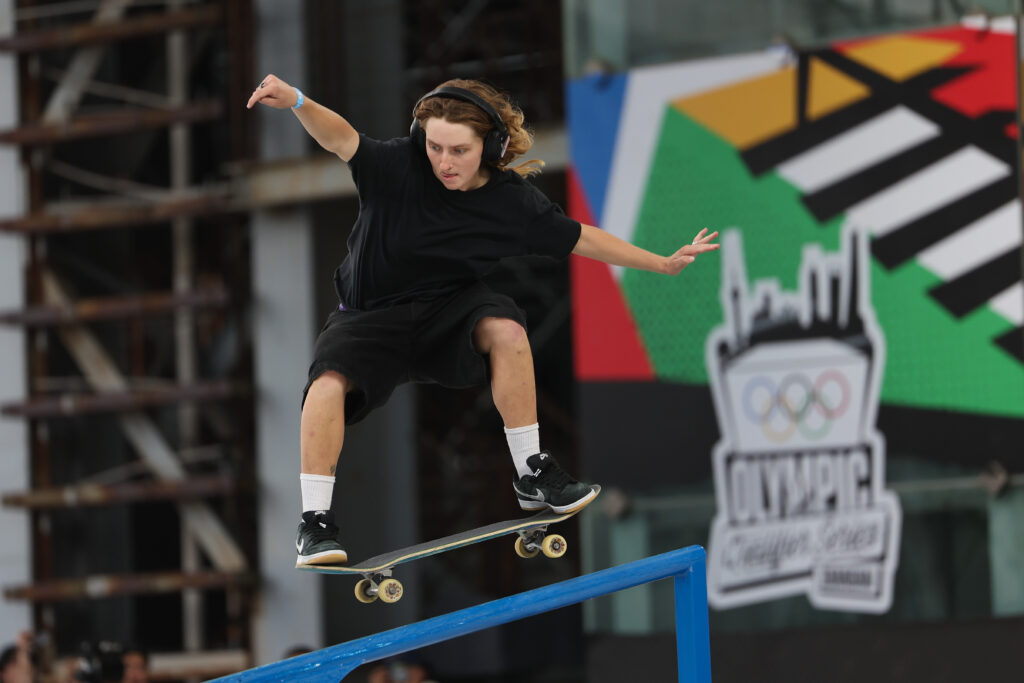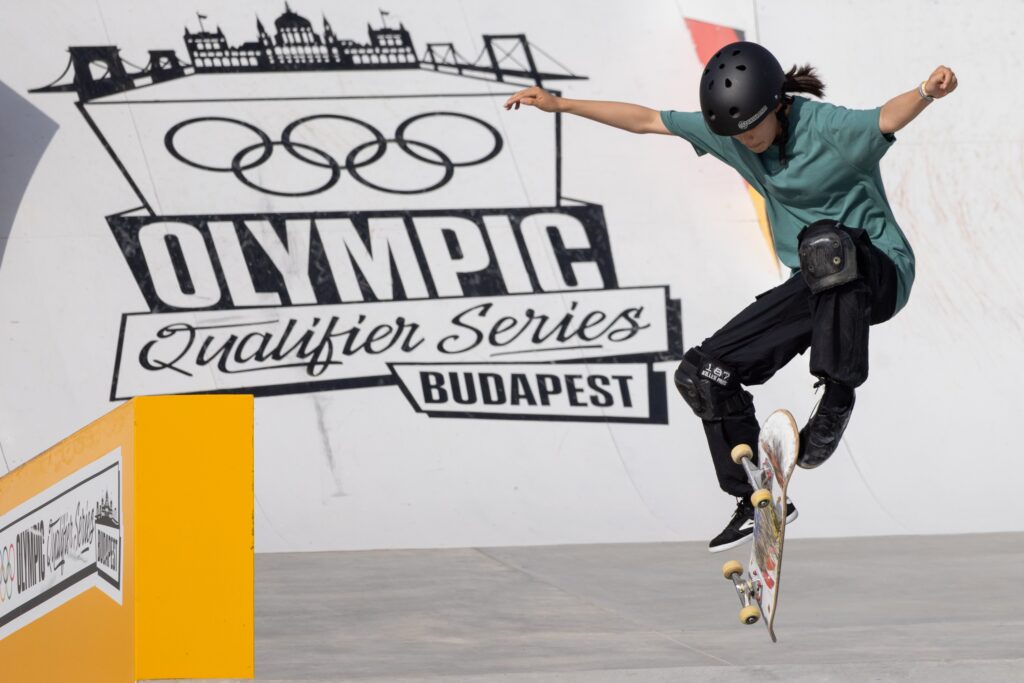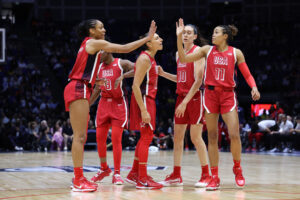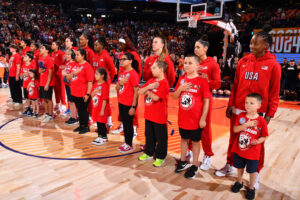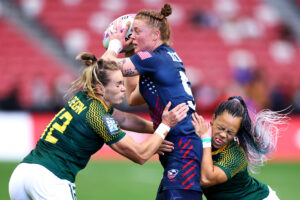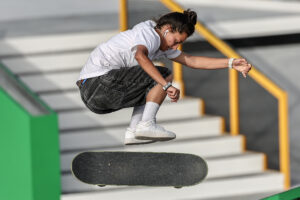After the U.S. women’s national team stumbled to a bronze in the Tokyo Olympics in 2021, fans and coaches alike came to a consensus: The team needed to get younger, quickly.
The extra year between the 2019 World Cup and the Olympics pushed the USWNT’s “run it back” approach to the brink. The U.S. relied on its veterans, and a number of younger players who now are key parts of the team did not even make the trip.
The tournament yielded bronze, but the team looked sluggish and out of sorts — and like it could use an infusion of fresh talent.
In the first true roster rebuild of head coach Vlatko Andonovski’s tenure, the pendulum swung quickly and decisively. He took only younger players on a trip to play Australia twice in December 2021, and the green roster seized the opportunity, garnering a win and a tie.
The 2022 SheBelieves Cup roster in February featured a similar build, and the U.S. again did well, winning the tournament behind Catarina Macario’s best run of form in her still early career.
Still, questions persisted: When would veterans be called back in? Had Andonovski gone too far in sidelining experience in favor of youth? In doing so, did he jeopardize the passing of the torch that comes with interpersonal mentorship across generations?
Andonovski did eventually call Becky Sauerbrunn, Alex Morgan and Megan Rapinoe back into the fold prior to this summer’s World Cup qualifying, but they returned to a team that had already changed its hierarchy. The coach also proved somewhat cagey about other long-time mainstays, saying Christen Press had more she needed to do before making a return.
Macario’s progress was halted by an ACL injury she sustained in June. Andonovski felt it important to emphasize that there will be a place for her when she returns, a decision made obvious by her value to the team, but also something of a mandate of rigidity.
Lindsey Horan has taken over the captain’s armband, a move that grounded the team in Australia and at the SheBelieves Cup. She’s kept the honor even with the return of more seasoned veterans.
The idea was that the next generation needed to build their minutes in high-stakes contests, and that the wealth of different experience levels would eventually meld into a perfect balance by the 2023 World Cup. But that process has not been linear, and after a third consecutive loss, fans are left asking still more questions.
The USWNT’s win over Canada in July’s Concacaf W Championship showed a step toward generational cohesion. The U.S. successfully maneuvered a tightly-wound contest and found a galvanizing force in Alex Morgan’s clinical finishing from the penalty spot. But that game also featured a number of badly missed chances and a lack of connectivity.
Against Germany on Thursday, with Morgan back in the lineup and a 29-year-old losing streak record on the line, the U.S. didn’t look like they’d made significant gains toward a full-team mentality.
The USWNT dominated stretches of the first half, and increasingly bad luck. But they also let themselves get pushed off the ball, and their sight lines became too narrow when they found themselves in quality goal-scoring positions.
Relying too much on athleticism and mentality has been a criticism of the USWNT for most of its existence. Indeed, the entire philosophy behind Andonovski’s program is that once the team modernizes, players will not need to have the mental fortitude of world-beaters in order to get the results they need.
But with the margins at the international level becoming increasingly thin, those kinds of intangibles matter, and the USWNT cannot find them when the time comes.
It’s perhaps unfair to overanalyze one of the smallest moments in a 90-minute game, but in the second half the intangibles came from the veterans.
Morgan and Rapinoe (who is quite effective off the bench) created a goal-scoring opportunity that was almost beautiful in its simplicity. In a lull in play, Morgan high-pressed the Germany backline into a mistake. Before the defense even knew what was happening, Morgan slotted a free pass to Rapinoe, who made a late run towards goal.
After an hour of futility, suddenly scoring seemed simple enough: press, pass, shoot, score.
🔥@alexmorgan13 ➡️@mPinoe@USWNT equalizes at 1-1! 🇺🇸🙌 pic.twitter.com/sO31FD6zwU
— FOX Soccer (@FOXSoccer) November 11, 2022
Those kinds of heads-up moments come from a certain amount of confidence and execution and, yes, experience. The last time the U.S. played (an admittedly very different) Germany in 2018, the same kind vision netted the USWNT the lone goal of the game: a long kick by Alyssa Naeher, flicked on by Morgan, finished by Rapinoe.
In 2022, one of Germany’s youngest players flipped the script for their own game-winner. Lena Oberdorf is already one of the best midfielders in the sport, and she saw a long-ball opportunity down the field during a stoppage in play that the U.S. wasn’t ready for.
Oberdorf just won Young Player of the Tournament at the Euros, and she was paying attention when the time came to swing the game. Again, a result forced by confidence, execution, and experience, with no age limit required.
It’s a mistake to blame any player of any experience level for what we’re seeing from the USWNT in 2022.
Younger players haven’t necessarily looked comfortable or empowered to play at their most free after the reintegration of large personalities back into the team. Veterans look similarly limited in their influence, with the process that brought them back into the team possibly sidelining them unfairly.
And Andonovski has increasingly begun to focus on the players that still are not with the team instead of catering to the ones that are.
Rather than the old-school/new-school divide, what the USWNT must take a nuanced look at approaches, communication styles, core values, and maybe a little bit of a classic bite. In short, managing the U.S.’s locker room dynamic is the same monumental challenge that it has always been, and it’s up to the coaching staff to unlock the potential of players young and old.
